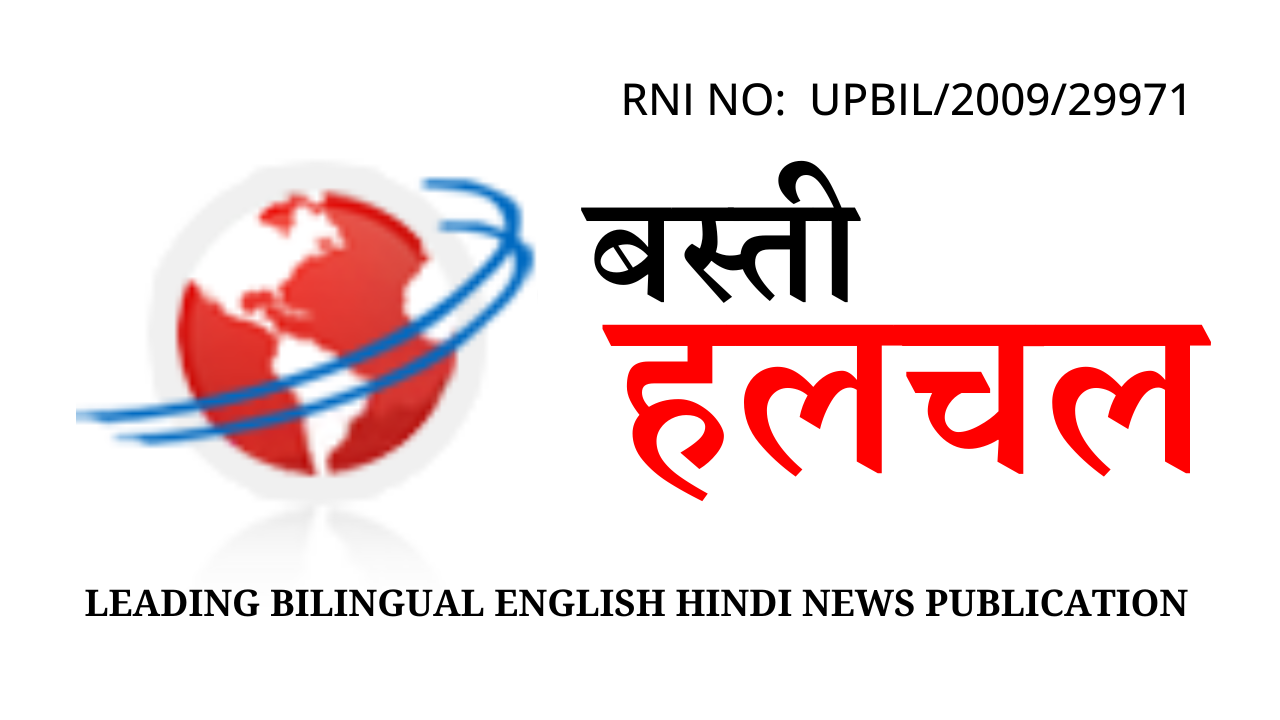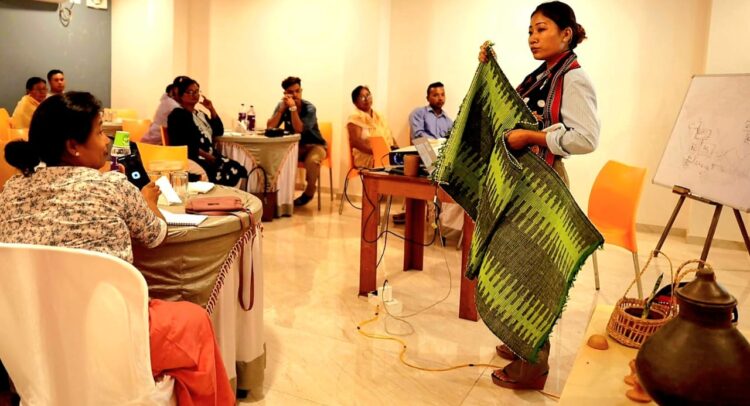Asem Bhakta, Special Correspondent North East
Imphal: Waari Singbul Network) Despite the sustained ethnic strife in Manipur, a group of women artisans of the state are hell bent on shaping up their focused tasks, and everything goes smoothly in their endeavors.
From their localized markets and modest work places in the remote corners of the state, now they have acquired the e-commerce skills, and once they complete certain formalities and guidelines prescribed by the government, they will stand qualified for entering the global market.
What is more amazing is that most of these women are now accustomed to operate computer and digital handlings to smoothen their e-commerce accomplishments. This trend will undoubtedly transform the crafts’ promotion and business dynamics and preserve the dying traditional artistries.
The force behind this game changing effort is Soubam Luxmibai Devi, winner of the US State Department’s Alumni Engagement Innovation Fund (AEIF) 2022.
She transformed the crafts landscape after organising a month long series of workshops which ended on July 26, this year under the banner of e-nupikeithel, a transformative initiative supported by AIFF, U.S Consulate General, Kolkata. The moniker of this smart initiative “nupikeithel” means women’s market.
Held at a hotel at Imphal West district’s Thangmeiband area, the workshop empowered women artisans of the state with digital, e-commerce, product design, sustainability, and scientific intervention skills, said Devi (36).
Over 20 women artisans took part in it which aimed to preserve the state’s rich heritage of eight unique ethnic dying crafts by educating them in digital media, e-commerce and product quality as well as sustainability.
Deep-coloured fabrics like Shaphee Lanphee and Lashingphee, glossy black pottery of Nungbi in Ukhrul district, brick red pottery of Andro in Imphal East, red ochre pottery of Nongpok Sekmai in Thoubal , redware pottery of Chairel in and Thongjao in Kakching , Greyware pottery of Ningthemcha Karong in Imphal West and wood carving of Tangkhul are such dying crafts.
Significantly, Shaphee Lanphee, the rare traditional hand-woven textile has its historical roots as it was handed over to warriors after they came victorious in fights as a bravery award by the rulers of Manipur during ancient times.
According to Devi, the workshops covered a comprehensive range of topics, including “Digital Marketing and Branding”, “Leveraging Social Media for Brand Promotion and Customer Engagement”, “Packaging – Product & Shipping”, “Managing Logistics for Efficient Operations”, and “Quality Control, Legal Compliances and Government Supported Schemes for Artisans” to equip participants with the skills needed to thrive in the online marketplace.
Apart from e-commerce, “the workshop also addressed crucial aspects of sustainable craft practices like Food Safety Practice and Basic Principles of Handloom & Handicrafts – Sustainable Dyeing & Artisanal Techniques,” said Devi, an Imphal resident on Tuesday.
The programme also further enriched the artisans’ understanding of product design through various sessions, she added.
Expounding, Devi said during the session under the topic “Introduction to Product Design Principles”, Maibam Surjamala, designer at the “Export Promotion Council for Handicrafts” (EPCH), shared fundamental design principles to enhance the aesthetics and functionality of handcrafted products.
On “Science Intervention in Handloom & Handicrafts for Sustainability”, Dr Chandralekha Ayekpam, research associate at IBSD, explored the application of science to ensure sustainable practices in handloom and handicraft production.
Coming to “Pottery: Enhancing Product Quality through Clay Science”, Padmini Konsam, founder of “Parables”, provided in-depth knowledge on clay science to help potters elevate the quality of their work, she added.
“We are thrilled with the positive response and the skills the artisans have acquired. This project goes beyond economic empowerment; it’s about preserving a cultural legacy,” she said, adding that the knowledge repository of video tutorials and interviews created during the project will serve as a valuable resource for future generations.
Integrated Rural Development Service Organization (IRDSO), Wangjing is the implementation partner of the project, said Devi who is also an alumni of the Academy for Women Entrepreneurs (AWE).
By equipping artisans with e-commerce, product design, and sustainability skills, the project empowers them to bypass geographical limitations, reach a global audience, and secure fair compensation for their work, continued Devi.
This not only strengthens their economic independence but also fosters the continuation of these unique crafts, ensuring their place in Manipur’s vibrant cultural tapestry, she added.
Kamla Samjetsabam, who specialized in Thongjao Pottery, said the workshop has been as game changer. Notably, Samjetsabam holds MSc degree in geology.
“This will not only secures my livelihood, but also ensures the survival of this age-old craft,” added Samjetsabam, while eying to enter into e-commerce after consulting with Devi.
Maisnam Lalini Devi, Shaphee Lanphee weaver and a national award winner on her dedicated works to promote and preserve and promote the vanishing fabric’s art said she really enjoyed the e-nupikeithel workshop.
“The course was extremely useful, informative and well taught so much so that it provided me with very effective strategies I could use,” she added.
“Through the workshop, we have learnt new methodologies like product packaging and shipping, modern fabric dying techniques, product designed principles etc.,” she said, adding that all the speakers were very thorough and knowledgeable.
Watching the relevant videos ahead of the training programme was a good idea as the session helped us focus on the course, added the renowned artisan, while expressing her utmost thankfulness to all the workshop organizers for giving her adequate knowledge of e-commerce in addition to preserve the dying traditional art form.


